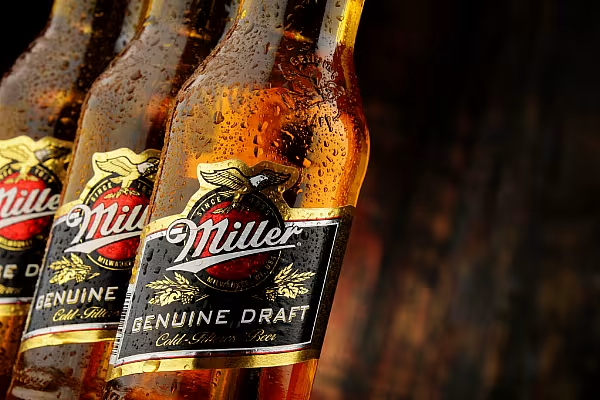The attempted takeover of SABMiller is a defining moment in the treatment of minority shareholders. If Anheuser-Busch InBev succeeds with its $104 billion bid for the London-based brewer, it will be a victory for the forces of big money and speculation, and set a worrying precedent for U.K. takeovers.
SABMiller's board is set to decide soon on accepting or rejecting AB InBev's revised 45 pounds-a-share cash offer, which was made officially "final." This turned a friendly situation hostile -- needlessly so.
The offer is inadequate for ordinary shareholders. Targets usually expect a 30 percent premium to fair value, which in SABMiller's post-Brexit world may be as much as 40 pounds, as Gadfly has argued. The price AB InBev's laid down provides an uplift of only 12.5 percent.
The snag is that the offer may well work for two big strategic SABMiller investors -- cigarette maker Altria and the Santo Domingo brewing dynasty -- plus a bunch of hedge funds. They can call the shots because together this group probably has over 50 percent of the company's shares.
The two big holders are tempted by an alternative offer AB InBev has provided, worth about 51 pounds a share and denominated in both cash and AB InBev shares. This enables them to stay invested for strategic reasons, or avoid crystallizing a taxable capital gain.
True, other shareholders can take this alternative offer if they want. The much criticized five-year restriction on trading that comes with it is a red herring. The financial world will doubtless offer these investors a way of cashing in the restricted shares earlier (albeit for a fee).
While 51 pounds is a good price, it's not possible for all shareholders to exit at that level. Terms of the offer restrict this alternative to 42 percent of SABMiller shares tendered. As a result, this blended offer is also inadequate.
As for the hedge funds, the absolute price of the deal is somewhat irrelevant so long as it is higher than the price at which they bought in to SABMiller. Even a small gain made over a few months becomes a big gain when amplified by leverage and annualized.
These holders are simply acting in their or their clients' interests. They can't be criticized for that. What's more, the hedge funds have their position thanks to long-only shareholders selling out. But the substance of the situation is that this group will determine the fate of the company.
It's hard not to admire AB InBev's tactical cunning. Neverthless, success would be a very sad moment for minority shareholders.
The only reason for SABMiller's board to recommend the new offer would be if they judged rejection to be futile. This could be the case. AB InBev might be able to persuade Altria and the Santo Domingos to back a hostile bid, which would spell game over for SABMiller. Better, the logic goes, for SABMiller to capitulate now and avoid the damage of a doomed fight.
Still, the principled thing for SABMiller to do would be to reject the offer on the basis that it is too low in a post-Brexit world.
If the deal goes ahead, that's a bad sign for U.K. companies that may also find themselves takeover targets -- a situation that's grown more likely given the rout in sterling.
AB InBev would have broken the mold for takeover structures designed to succeed by catering to the unique circumstances of certain big shareholders. That may embolden others to use the same strategy, to the disadvantage of minority shareholders.
But if the bid fails, a better precedent is set. That would demonstrate that deals, once started, don't have to finish if circumstances change. The M&A machine does not have to be some kind of ineluctable force.
This column does not necessarily reflect the opinion of Bloomberg LP and its owners.
News by Bloomberg, edited by ESM. To subscribe to ESM: The European Supermarket Magazine, click here.














